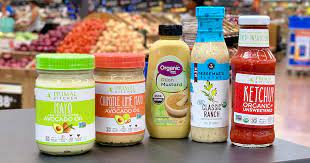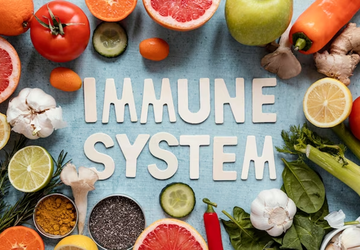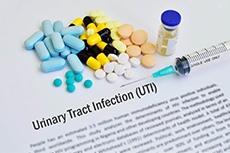Boosting Metabolism: Myths and Truths
Understanding metabolism-boosting facts is crucial in the journey towards a healthier lifestyle. Metabolism refers to all the biochemical processes that occur within the body, including the conversion of food into energy. One key metabolism-boosting fact is the role of muscle mass in increasing metabolic rate. Muscle tissue burns more calories at rest compared to fat tissue, which means that building muscle through strength training can be effective in boosting metabolism. Additionally, adequate hydration is proven to temporarily increase metabolism, as the body requires water for efficient metabolic processes.
Debunking Common Metabolism Myths

There are several metabolism myths debunked that can mislead individuals about how to boost metabolism. One such myth is the belief that eating certain 'superfoods' can significantly increase metabolic rate. While a balanced diet is important for overall health, no specific food can dramatically change metabolic rate. Another common myth is that drastic calorie reduction leads to faster weight loss. In reality, this can slow down metabolism, as the body conserves energy in response to perceived starvation. Understanding these metabolism myths debunked helps in adopting a more effective and sustainable approach to metabolism-boosting.
Effective Lifestyle Changes for How to Boost Metabolism
When considering how to boost metabolism, it's essential to focus on sustainable lifestyle changes. Regular physical activity, especially a combination of aerobic and resistance training, is one of the most effective ways to enhance metabolic rate. Incorporating protein-rich foods in your diet can also aid in metabolism boosting, as the body expends more energy digesting protein compared to fats or carbohydrates. Getting enough sleep and managing stress is also crucial, as both can impact hormonal balance and, consequently, metabolic rate.
The Impact of Age on Metabolism and How to Adapt
It's a well-known metabolism-boosting fact that the metabolic rate naturally slows down as we age. This is partly due to the loss of muscle mass and changes in hormonal levels. However, boosting metabolism is possible in later years. Engaging in regular physical activity and strength training can counteract the effects of ageing on metabolism. Adapting your diet to include nutrient-dense foods and maintaining an active lifestyle are key strategies in how to boost metabolism as you age.
Examining the Role of Genetics in Metabolism Efficiency
A critical aspect of metabolism-boosting facts involves understanding the role of genetics. While lifestyle and dietary habits are significant, genetic factors also play a crucial role in determining metabolic rate. This means that individuals may experience different rates of metabolism naturally, impacting how their bodies process and utilise energy. Recognising this genetic influence is important when considering how to boost metabolism. It underscores the importance of personalised approaches rather than one-size-fits-all solutions and also helps in addressing and understanding some metabolism myths debunked.
Nutritional Strategies Tailored for Metabolism Enhancement
In the realm of nutritional approaches to boost metabolism, the focus is often on balanced, whole-food diets. Diets rich in fibre, such as those containing fruits, vegetables, and whole grains, can positively impact metabolic rates due to the energy required to digest these foods. Additionally, incorporating moderate amounts of healthy fats like omega-3 fatty acids found in fish and nuts can contribute to metabolism-boosting. These nutritional strategies, when combined with regular physical activity, form a comprehensive approach to boosting metabolism.
The Misconception of Negative Calorie Foods in Metabolism Boosting
One popular metabolism myth debunked is the concept of negative calorie foods, which are believed to burn more calories during digestion than they provide. While certain foods like celery are low in calories and require energy to digest, the effect is not significant enough to dramatically boost metabolism. Understanding these nuances is essential in discerning factual metabolism, enabling facts from myths. A balanced view of nutrition, recognising the roles of different food groups, is more beneficial for metabolism than focusing on specific 'miracles' of foods.
The Influence of Hydration on Metabolic Processes

Hydration plays a pivotal role in maintaining efficient metabolic functions, a key point in metabolism-boosting facts. Adequate water intake is essential for various metabolic processes, including energy production and temperature regulation. Even mild dehydration can slow down metabolism, which is why drinking sufficient water is often recommended as part of how to boost metabolism strategies. Incorporating hydrating foods, such as fruits and vegetables, can also contribute to overall fluid.
Sustainable Lifestyle Changes Over Quick Fixes
In pursuit of how to boost metabolism, it's crucial to focus on sustainable lifestyle changes rather than quick fixes. Crash diets or extreme exercise regimens may offer temporary boosts but can be counterproductive in the long run. Sustainable changes, such as gradually increasing physical activity, making incremental dietary improvements, and ensuring adequate sleep, are more effective and maintainable. This approach aligns with authentic metabolism-boosting facts and helps debunk metabolism myths that often promise unrealistic results.
Conclusion
In conclusion, understanding the truths about metabolism is essential for effective health and wellness strategies. By focusing on verified metabolism-boosting facts, debunking common myths, adopting sustainable lifestyle changes, and adapting to age-related metabolic changes, individuals can effectively enhance their metabolic rate. Remember, a holistic approach that combines diet, exercise, and overall wellness is the most effective way to boost metabolism and maintain long-term health. Enhancing metabolism effectively involves a combination of understanding genetic factors, adopting tailored nutritional strategies, staying hydrated, and making sustainable lifestyle changes. Debunking common myths and focusing on evidence-based practices are crucial for anyone looking to improve their metabolic health.
FAQ’s
FAQ 1: Can Eating Certain Foods Significantly Boost Metabolism?
Answer: While no specific food dramatically boosts metabolism, a balanced diet rich in fibre, proteins, and healthy fats can aid in maintaining an efficient metabolic rate.
FAQ 2: How Does Physical Activity Influence Metabolism?
Answer: Regular physical activity, especially strength training, boosts metabolism by building muscle mass, which burns more calories than fat, even at rest.
FAQ 3: Are There Quick Fixes for Boosting Metabolism?
Answer: There are no quick fixes; sustainable lifestyle changes, such as balanced nutrition, regular exercise, and proper hydration, are the most effective methods for boosting metabolism over time.
Don't Miss
-
![Delicious tomato sauces and condiments to garnish your meals]()
- Health & Medical Treatment
Delicious tomato sauces and condiments to garnish your meals
1756436163000
-
![Childhood Obesity: Causes and Solutions]()
- Health & Medical Treatment
Childhood Obesity: Causes and Solutions
1756436163000
-
![Boosting Metabolism: Myths and Truths]()
- Health & Medical Treatment
Boosting Metabolism: Myths and Truths
1756436163000
-
![Core Workout]()
- Health & Medical Treatment
Core Workout
1756436163000
-
![Common Urinary Tract Infections &(UTIs&) In Humans]()
- Health & Medical Treatment
Common Urinary Tract Infections &(UTIs&) In Humans
1756436163000
-
![Boost Immunity with These 10 Foods: Ditch Processed Goods for Good!]()
- Health & Medical Treatment
Boost Immunity with These 10 Foods: Ditch Processed Goods for Good!
1756436163000








